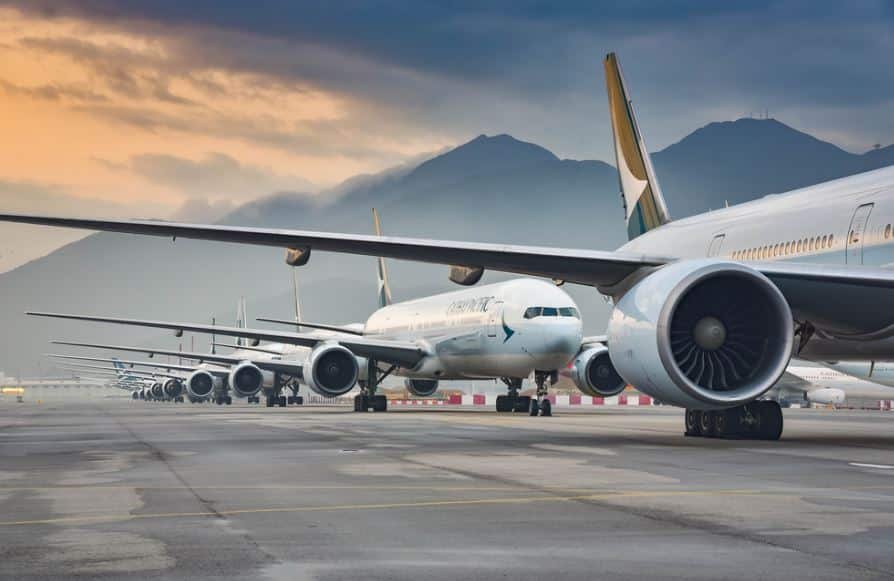Travel
Can Airlines be Secured Globally?

The COVID-19 epidemic has considerably shrunk air travel and has significantly impacted the aviation industry’s revenues. Airlines, airports, governments, international agencies, and independent aviation stakeholders are all working to improve and grow aviation security capabilities as threats to aviation continue to emerge.
Although security issues and threats may change throughout and after the pandemic, the necessity of incident management, teamwork, and security assurance should not be overlooked, whether it’s about aviation or even when finding the assignment help UK. In addition, as they look to develop and evolve their operations, the industry must adjust to the ever-changing regulations and difficulties that the global security environment brings.
[lwptoc]
Who is Responsible for Aviation Security?
Aviation security is a set of policies, procedures, and material resources designed to protect civil aviation from acts of sabotage. for instance, Terrorism, threats to life and property, false threats, bombings, and other forms of unlawful interference. Airline operators are considered responsible for the safety of their passengers, assets, and profits. Airlines must create and implement complementary programs compatible with those of the states from which they operate. However, it’s crucial to remember that security isn’t only the duty of senior management or the Head of Security. Everyone is involved in security, and fostering a secure environment requires a healthy security culture.
The ultimate goal is to improve global security by establishing consistent security measures worldwide, which cannot be accomplished without a strong commitment from all parties involved (IATA, 2021).
The Possible Threat & Safety Measures for them
Emerging technologies and a growing reliance on cyber are changing the nature of threats, putting pressure on the industry to maintain its safety standards, especially as the number of air travelers is expected to increase in the next 15-20 years. All the safety measures and possible strategies should be taught in aviation dissertations topics to all the candidates studying aviation for a better and advanced future of aviation.
Here are four possibilities in which the expected growth of the international security situation will affect aviation and four possible measures to tackle the problem.
The Threats to Aviation Industry
- The power to impose large-scale destruction is becoming increasingly democratized because of technological advancements. Attacks that were previously only possible for a few big states are now possible for a wider variety of non-state individuals.
- The fusion of cyber and physical security introduces new risks. The democratization of the ability to cause large-scale devastation is directly linked to combining the virtual and physical worlds: remote attacks are increasingly capable of causing major real-world disruptions.
Reservation systems, flight traffic management systems, departure control systems, access control systems, passport control systems, hazardous materials transportation management, cargo handling, and shipping are all potentially hackable systems in civilian aviation.
- As computers perform more tasks, human skills deteriorate. Like the military and self-driving vehicle manufacturers, the aviation sector is grappling with the contradiction of automation.
As automated systems become more capable of handling a wider range of scenarios, humans will only be required to interfere when something exceptional or unexpected occurs. On the other hand, humans are now less and less capable of reacting fast and effectively as they have fewer opportunities to practice and improve their talents.
- Aviation is still a valuable target. Modern conflicts slop into civilian sectors, whether between nation-states or non-state actors.
Because civilian aviation is so important to the smooth operation of economies, aviation-related incidents have such a large impact on the media, especially with new technologies allowing for the rapid spread of information and misinformation. It will continue to be a tempting target for attackers seeking maximum disruption.
The Possible Strategies
- Excessive obedience might be destructive. There is still an inclination to focus safety efforts on ensuring that current regulations are followed. However, because rules take time to reflect new exposures, growing threats may be neglected, causing preparedness to suffer.
- In the cyber domain, much of the industry could still do much more to work with hackers, who can help them identify and re-frame their understanding of vulnerabilities.
Too much still depends on experiences rather than scenarios in the physical world. Frequently, the answer to one assault is to adjust security protocols so that the vulnerability is shifted. Adding another security checkpoint won’t help if it produces queues in front of it weak to an attack.
- Cooperation on physical and cyber security issues strengthens everyone. Individual enterprises must avoid viewing their resilience to assaults as a source of comparative advantage. This encourages dishonest individuals to look for the weakest link, and any successful attack damages the sector as a whole.
- In the digital age, we need to rethink border security. Although assaults can now be carried out remotely, a better understanding of passengers improves airline safety — and the existing approach to cross-border mobility is the 20th century.
Much more could be done to manage risks while also providing a more seamless travel experience, such as facilitating what some have dubbed a traveler program to expedite certain cross-border activities, establishing standards on data sharing and use, traveler analytics, and border controls – such as ensuring quick and universal flagging of lost or stolen travel documents. This could also be an important part of solving the problems listed above.
Conclusion: Why is Aviation Security so Important?
Over time, and especially with rising globalization, the civil aviation industry has evolved into one of the key axes of trade, allowing for the interconnectedness of all countries, to the point that airports, particularly international airports, have become the country’s gateways or borders.
The industry’s importance, especially its prestige, is rapidly attracting criminals and terrorists who want to exploit civil aviation to exert pressure on countries and further their agendas.
As a result, measures to protect the aviation sector have not been neglected, and daily controls have been increased, ensuring safety and industrial reliability.
-

 Entertainment2 months ago
Entertainment2 months agoBflix.gg Not Working? Here’s Where You Can Stream Free Now
-

 Fashion2 months ago
Fashion2 months agoVintage Styles Making a Comeback: Trends You Should Know
-

 Tech1 month ago
Tech1 month agoLatest Durostech Updates: Key Highlights
-

 Entertainment2 months ago
Entertainment2 months agoIs Shannon Reardon the Same as Swanick? Here’s What We Know






